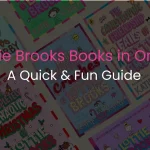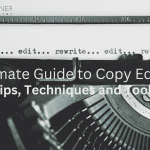Ever wonder how authors such as J.K. Rowling and Stephen King got their big break? While skill and perseverance are important, many successful authors have a powerful ally in their corner: a literary agency. Literary agent serves as a link between budding authors and the vast publishing industry. But what exactly is a literary agency, and how can they help you publish your work? Let’s get into the details of what literary agents do and why you might want one on your team.
What is a Literary Agent?
A literary agent is a professional representative of writers. Consider them your personal advocate in the publishing world. Their responsibilities include finding publishers for the authors they represent, negotiating contracts, and providing career coaching.
A literary agent essentially serves as your entry point into the traditional publishing market. They know the ins and outs of the industry, have built relationships with editors, and understand what it takes to move your book from manuscript to bookshop shelf.
Why Do You Need a Literary Agent?
You might be thinking, “Why do I need a literary agent when I can just publish my book myself?” While self-publishing is a realistic choice for some, literary agents provide various benefits.
First and foremost, they have the knowledge and industry connections to put your book in front of the correct people. Publishers are more inclined to take a manuscript seriously if it comes from a reputable agent.
Furthermore, agents are expert negotiators, ensuring you get the greatest contract possible and protecting your rights as an author.
The Key Responsibilities of a Literary Agent
A literary agent wears many hats, but their primary responsibilities can be broken down into a few key areas:
Finding Publishers for Manuscripts
Agents are always on the lookout for the best publishing opportunities for their clients. They know which publishers are looking for what genres and can match your manuscript with the right editor.
Negotiating Contracts
One of the most critical roles of an agent is negotiating contracts on behalf of their clients. They ensure that all terms are favorable, fair, and protect the author’s interests.
Providing Career Guidance
Beyond just selling your manuscript, a good literary agent will help guide your writing career, advising on future projects and helping you build a long-term strategy.
How Literary Agents Find Talent
Ever wonder how literary agents find the next big author? It’s not as mysterious as it might seem. Agents are constantly on the lookout for new talent, and they find authors in several ways:
-
- The Query Letter: Most agents discover new authors through query letters. A query letter is a one-page pitch that introduces you and your book. It’s your first chance to make a good impression, so it’s crucial to get it right.
-
- Literary Contests and Workshops: Agents often attend writing conferences, contests, and workshops. These events are great places for authors to network and showcase their work.
What Literary Agents Look for in a Manuscript
Not all manuscripts are made equal, and literary agencies choose their clients carefully. Here are some of the main things they check for.
Genre Preferences
Literary agencies may have certain genre preferences, which are important when reviewing new manuscripts. They usually specialize in genres that they are familiar with and have a strong network in, such as romance, mystery, or science fiction.
By selecting a literary agent who is familiar with your genre, you boost your chances of finding someone who is enthusiastic about your work.
Understanding a literary agent’s genre preferences can allow you to better focus your submissions and boost your chances of getting your manuscript accepted.
Writing Quality and Style
Literary agents search for high-quality writing and a distinct style in a manuscript. They want to see a good mastery of the language, clear and entertaining prose, and a unique voice that distinguishes the author.
Literary agencies are drawn to manuscripts that are unique and creative, with a well-structured plot that keeps readers interested.
Good writing quality and a compelling style are vital for attracting a literary agent’s attention and enhancing your chances of publication.
Market Potential and Originality
Literary agencies seek manuscripts with high market potential and creativity. They seek stories that will sell well and have a distinct voice or perspective to distinguish them apart.
An agent may be interested in a book that takes a new approach to popular genres or subjects. Literary agents also analyze contemporary trends and reader interests to ensure the story’s marketability.
How to Approach a Literary Agent
Approaching a literary agent can be intimidating, but it doesn’t have to be. Here’s how you can make a great first impression:
Researching Potential Agents
Researching possible literary agencies is an important step in determining the best fit for your book. Begin by looking for literary agents who represent your genre and have a proven track record of accomplishment.
Check their websites, study client reviews, and carefully adhere to their submission rules. Many literary agencies post their tastes and hobbies online, so spend some time learning about them.
This research will prepare you to approach literary agents who are more likely to be interested in your narrative.
Crafting a Compelling Query Letter
When pursuing literary agencies, you must write a captivating query letter. A query letter is your initial impression, and it should capture the agent’s attention.
Begin with a compelling hook that emphasizes your story’s distinctive qualities. Clearly summarize your plot, emphasizing the key conflict and characters.
Be concise and professional, and add a brief bio that highlights your writing experience. A well-written query letter can make a literary agent want to see your novel.
Following Submission Guidelines
It’s important to pay close attention to the submission rules of literary agents when contacting them. The prerequisites for submitting a work vary from agent to agency and may include a query letter, synopsis, or sample chapters.
You run the risk of having your submission rejected without any thought if you fail to follow these criteria. Following the guidelines provided by literary agents shows that you are a professional and considerate of their time,
which will improve your chances of striking up a conversation and having your work picked up for publication.
The Query Letter: Your First Impression
Your query letter is your chance to make a strong first impression. Here’s what you need to know to make it stand out:
Essential Components of a Query Letter
Your query letter serves as an introduction to literary agencies, therefore it’s important to get a good impression right away.
An attention-grabbing hook that draws the agent in, a succinct synopsis of your narrative, and a brief author bio that highlights your writing background are all crucial elements of a query letter.
Be sure to tailor the letter to each agent, demonstrating that you have considered their tastes and think they would be a suitable fit for your work.
Common Mistakes to Avoid
Common errors in inquiry letters can hurt your chances of being read by literary agencies. Write a letter that isn’t too long or too vague; agents like pitches that are precise, succinct, and straightforward.
Another mistake that could result in an instant rejection is failing to adhere to submission criteria. Furthermore, it might be unsettling to use a tone that is too official or informal.
A strong query letter should be targeted, professional, and customized to the tastes of the literary agent.
Examples of Effective Query Letters
Look at successful query letters online or in writing guides to get a sense of what works. Mimic the structure but keep your voice original.
What Happens After You Get a Literary Agent?
Congratulations, you’ve landed a literary agent! But what happens next?
Refining Your Manuscript
Editing your manuscript is an essential next step after landing a literary agent. Literary agents can offer you thorough criticism to help you refine your work.
To make sure the work satisfies industry standards, this entails rewriting dialogue, character development, and story points. The likelihood of a publisher purchasing the work increases with effective modifications.
This procedure enhances the visibility of your story, increasing publishers’ interest and, eventually, the likelihood of success in the cutthroat book market.
Submitting Your Work to Publishers
A literary agent will assist you in sending your work to publishers after you’ve found one. Using their industry connections and expertise, literary agents can help you pitch your book to editors who might be interested in your genre.
They negotiate agreements, manage the submission process, and respond to publisher criticism. This assistance makes sure your work is presented in the best possible light and boosts your chances of landing a publication deal.
What to Expect During the Submission Process
Upon obtaining a literary agency, the process of submitting work starts. Your novel will be submitted to publishers by literary agents through their industry connections.
They may submit your work to several publications in an effort to secure the greatest possible agreement because their goal is to identify the best fit for it. You should anticipate receiving updates from your representative regarding offers and comments.
It may take some time to complete this procedure, but with your agent’s experience guiding you through it, your chances of a successful publishing will increase.
The Role of a Literary Agent in Contract Negotiations
When a publisher offers to buy your book, your agent steps in to negotiate the terms.
Understanding Publishing Contracts
When it comes to negotiating publication contracts on behalf of authors, literary agents are invaluable. They make use of their experience to guarantee that the conditions of the contract are advantageous and uphold the rights of the author.
Literary agents are skilled in negotiating higher advances, royalties, and rights since they are aware of industry norms. They serve as a mediator between the writer and the publisher,
assisting in the elucidation of intricate contract terms and championing the writer’s interests during the bargaining procedure.
Key Contract Terms Agents Negotiate
When it comes to negotiating publication contracts on behalf of authors, literary agents are invaluable. They make use of their experience to guarantee that the conditions of the contract are advantageous and uphold the rights of the author.
Literary agents are skilled in negotiating higher advances, royalties, and rights since they are aware of industry norms. They serve as a mediator between the writer and the publisher, assisting in the elucidation of intricate contract terms and championing the writer’s interests during the bargaining procedure.
Protecting Your Rights as an Author
When it comes to defending your rights as an author during contract talks, literary agents are invaluable. They make use of their experience to guarantee that the conditions of your publication agreement are advantageous and just.
Literary agents represent you in all negotiations regarding advances, royalties, rights acquisition, and legalese. Their background in the field helps you steer clear of typical traps and guarantees that your interests are fairly represented, freeing you up to concentrate on your work.
Common Misconceptions About Literary Agents
There are many myths about literary agents that can cause confusion.
The Myth of Instant Success
The notion of immediate success is a prevalent misperception regarding literary agents. Many authors think their book will become a hit right away if they land a literary agent.
As important as literary agents are in helping you get your work noticed, success usually comes with patience, persistence, and ongoing promotion.
While agents can guide one through the publishing world, success requires more than just getting representation it also requires patience and hard effort.
The Idea That Agents Only Want Established Authors
It’s a frequent misperception that literary agencies exclusively wish to represent well-known writers. In actuality, literary agents frequently have a strong desire to find up-and-coming authors.
They are looking for new authors and inventive tales to submit to publishers. A track record may be useful, but many agencies are enthusiastic about developing new talent and seeing rookie authors through to success.
Regardless of your prior publishing experience, literary agencies are likely to be interested in your manuscript if it is strong.
Misunderstandings About the Agent-Author Relationship
A common misconception among writers is that literary agents only represent well-known authors or can secure a book deal. As they assist writers in connecting with publishers and refining their manuscripts, literary agents are actually invaluable collaborators for writers of all stripes.
While they may not guarantee immediate success, they do provide industry connections and knowledge that improve the likelihood of publication. Authors can maximize their collaboration with literary agents by having a clear understanding of this connection.
How to Choose the Right Literary Agent for You
Choosing the right literary agent is crucial for your career. Here’s how to find a good match:
Evaluating an Agent’s Experience and Client List
It’s important to consider a literary agent’s clientele and experience before hiring them. Seek out agents that have successfully represented writers to large publishers and who have a track record in your genre.
Books that are comparable to yours should be on the varied client list of a reputable representative. This shows that they can comprehend and effectively market your work.
To be sure they have the knowledge and contacts to support your success, look into their most recent sales and look for glowing testimonials from satisfied customers.
Ensuring the Agent’s Vision Aligns with Yours
Make sure your vision and the literary agent’s coincide when selecting one. Literary agents must share your enthusiasm and comprehension of your tale in order to effectively represent you.
Seek out agents who share your appreciation for the genre and style of your writing, as this will enable them to properly promote your work.
To find out if they can really advocate for your narrative in the publishing business and share your creative ambitions, look into their past work and client success.
Red Flags to Watch Out For
When selecting a literary agency, be mindful of any warning signs that may indicate problems. Agents that demand large upfront payments or make improbable claims of rapid achievement should be avoided.
Steer clear of anyone who pressure you into signing a contract without giving it careful thought or who appear uninterested in your manuscript.
It’s critical to investigate their reputation and confirm if they have a history of profitable book sales. A reliable literary agent will be open, courteous, and committed to serving your best interests.
Alternatives to Working with a Literary Agent
While literary agents can be incredibly beneficial, they’re not the only route to publication.
Self-Publishing Options
Self-publishing is a popular option if you’re thinking about doing something other than working with a literary agency. With this option, you can continue to have complete control over the marketing, design, and content of your book.
Without the assistance of a literary agent, authors can publish their works directly to readers using services like IngramSpark and Amazon Kindle Direct Publishing (KDP).
This may be a speedier and more economical option, but you will have to manage every part of the publication process. And If you are looking for the best self publishing service in india, the option is BlueRose Publishers. BlueRose Publishers takes care of everything what it takes to self publish your story.
Independent Publishers
An excellent substitute for literary agencies if you would rather not deal with them are independent publishers. It is possible to send your work straight to these smaller publishers without the requirement for an agency because they frequently accept unsolicited manuscripts.
Because they are more adaptable and concentrate on specialized markets, independent publishers enable more individualized care. While their financial support may be less than that of huge publishers, they can nevertheless provide you a great deal of creative autonomy and a more active role in book promotion.
Literary Consultants
Consider hiring a literary consultant if dealing with a literary agent isn’t right for you. These experts provide advice on a range of manuscript-related topics, including marketing tactics and editing and organization.
Literary consultants concentrate on refining your work and provide criticism to increase its marketability, as opposed to literary agents, who usually try to sell your book to publishers. For writers looking for specialized assistance without going via a traditional agency, this can be a great substitute.
Conclusion
A literary agent can be a very useful friend on your path to getting your work published. Their industry connections, negotiation abilities, and invaluable expertise can aid you in navigating the intricate world of publishing.
Having a solid understanding of literary agents’ roles and how they may support you is crucial, regardless of your writing career stage. Finding the ideal agent and developing a solid working connection with them will help you get your story published.
















